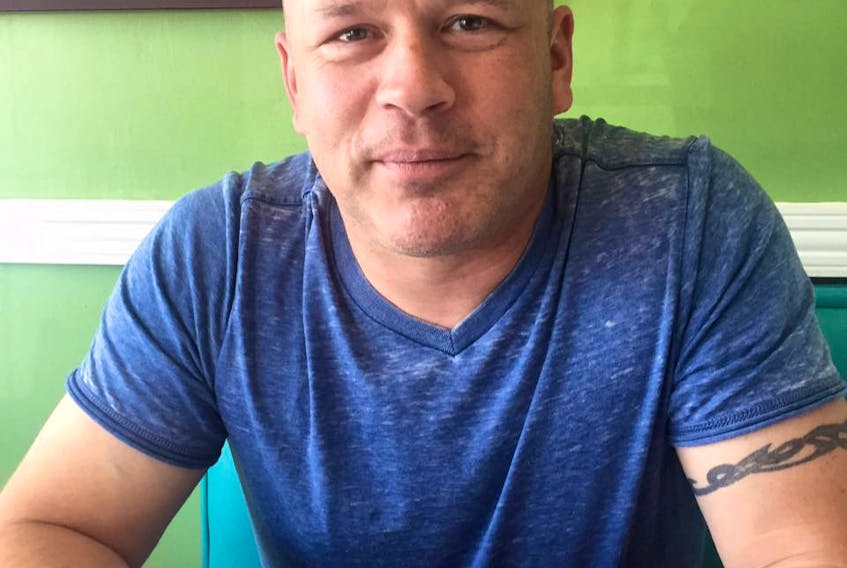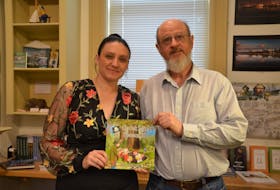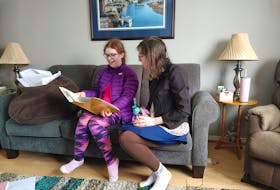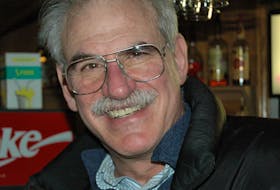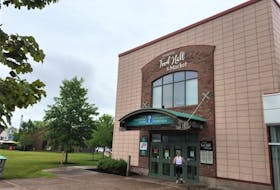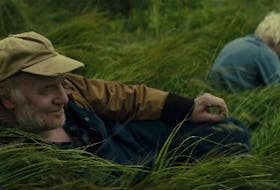SHELBURNE, N.S. - Sable River resident Todd Sisk is a helper. Like other first responders, it’s a part of who he is.
In 2007, Sisk became a paramedic and began working in the field in New Brunswick.
While Sisk was trained in many scenarios to help the sick and sometimes dying, he says he didn’t receive any training for what would happen when he himself was injured.
His injury you cannot see. Bandages will not fix his wounds.
Like many other emergency responders, Sisk developed post-traumatic stress disorder (PTSD).
By 2012, he officially retired as a paramedic.
Things changed
He says throughout his career he went a variety of calls both bad and good and always seemed to manage well.
But, in 2010, a series of calls would come in quick succession that left him scarred.
He says 90 per cent of being a paramedic can be very boring but the other 10 per cent can be damaging.
“It’s sheer boredom interrupted by complete horror,” he says.
There was no time to recover between incidences and Sisk didn’t understand the rough patch that happened next.
He had difficulty leaving the house and fell into a depression.
“I was angry at myself and the world and I wasn’t getting the help I needed,” Sisk says.
He says there was little to no supports set up at his workplace.
The most that would happen after a bad call was a pat on the back, he says.
“From then on I had to get my own help,” he says.
More help needed
He says there is a huge lack of resources for people with PTSD.
This may be why the country sees one of the highest instances of PTSD in paramedics in Canada with 22 to 24 per cent rate, according to www.tema.ca, and there have been 127 first responders and 54 military suicides since 2014.
“Those are just the reported ones,” says Sisk.
He, too, has lost more than one friend and coworker to PTSD and he still sees many in the field suffering without support.
“There are people working who shouldn’t be working,” he says.
He says he was able to find his own help and has been learning how to live with PTSD.
“It’s like living in a constant state of fight or flight,” he says, that also comes with anxiety and depression.
He wishes more supports will be put in place for those in the emergency field.
“If I had gotten the help I needed at the time there is no doubt I’d still be working,” he says.
He is in a court battle with Work Safe New Brunswick for what he says is a violation of human rights for not recognizing a mental health disability as a workplace injury.
“I wish I had fallen down the stairs,” says Sisk. “Because that is an injury they can see.”
Some help
He says, since he left his job as a paramedic, there have been improvements in PTSD awareness, but there is still a long way to go.
“There are still people out there who need help,” he says.
But Sisk is a helper.
“I fought my fight and it was a long battle,” he says. “I don’t want the next guy to fight this on his own.”
There is only a handful of PTSD treatment centres in North America, he says. One of those places, Rally Point Retreat, is right here in Shelburne County.
In fact, the Sable River centre to help those with PTSD is what drew Sisk to the area. He now serves on its board of directors.
He says he first started using the centre as a place just to get away, not worry and regroup.
“Once I got to know them and their place it gave me a purpose,” says Sisk.
Sisk knows that awareness is key to surviving PTSD.
“If you have a bad call or the job is affecting you, reach out, get help,” he says. “If you don’t, things can build and blow up and it will be a mess.”
He says even just getting together for a debriefing after a call can help.
“Talk about it,” he says. “We are all there to help people why not help each other.”
Find resources for dealing with PTSD at: www.rallypointretreat.org and www.tema.ca
Fundraiser for Rally Point Retreat
On Nov. 4, The Ship's Galley in Shelburne will be celebrating its third anniversary and the staff is holding a fundraiser for Rally Point Retreat.
“Rally Point Retreat is a great cause and it helps so many people, we thought we do something to help them out'' says Laura Torak.
The day will be filled with local musicians, specials from the menu, tickets on a basket of goodies and a "pass the hat" for donations.
“With every 16 ounce craft beer that is sold we will donate a $1 of that sale,” said Tom Torak, one of the owners of the Ship’s Galley.
The host for the day is Chett Buchanan. Anyone that is interested in contributing to this event can contact Buchanan or The Galley at 902-875-3260.

